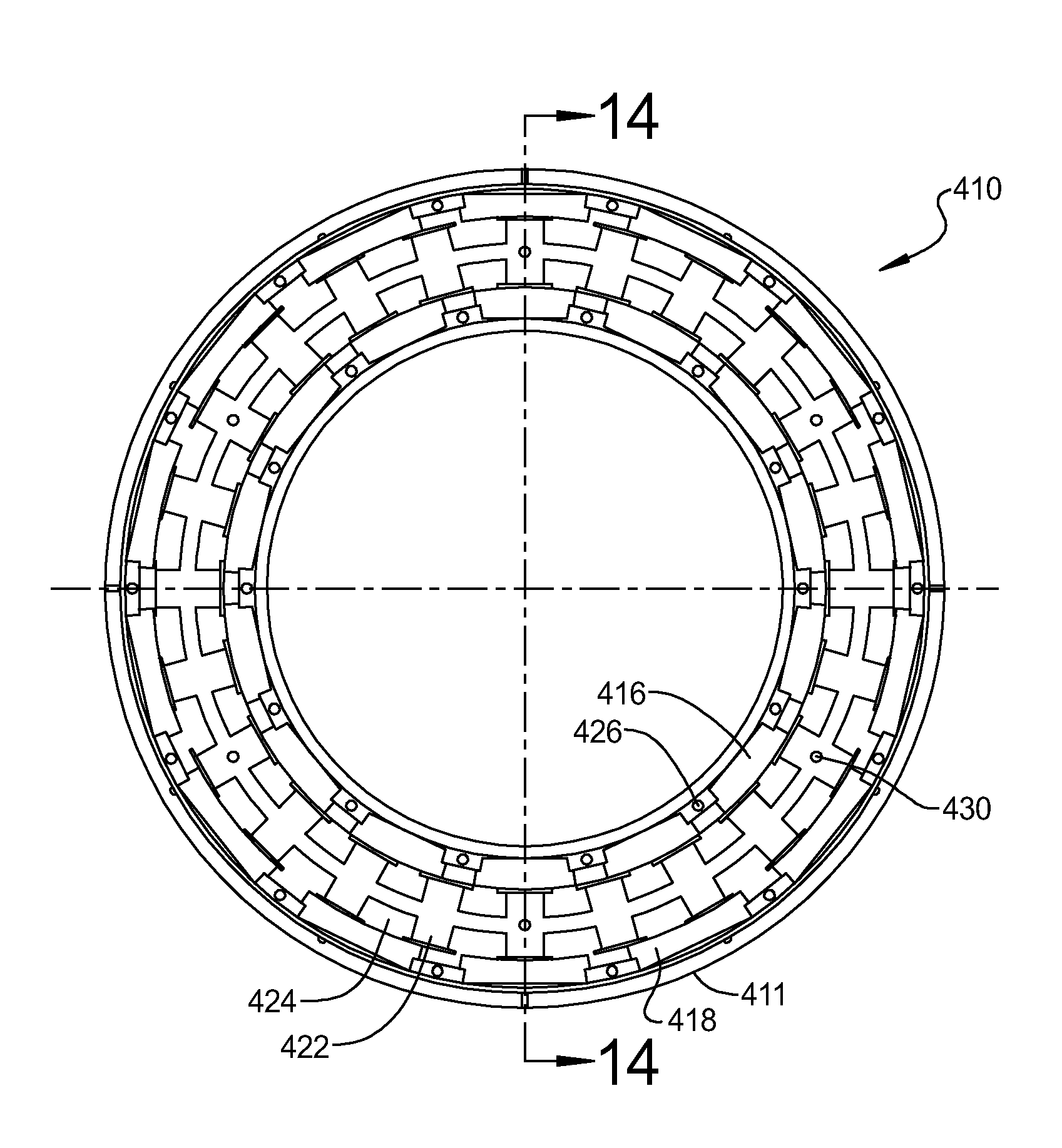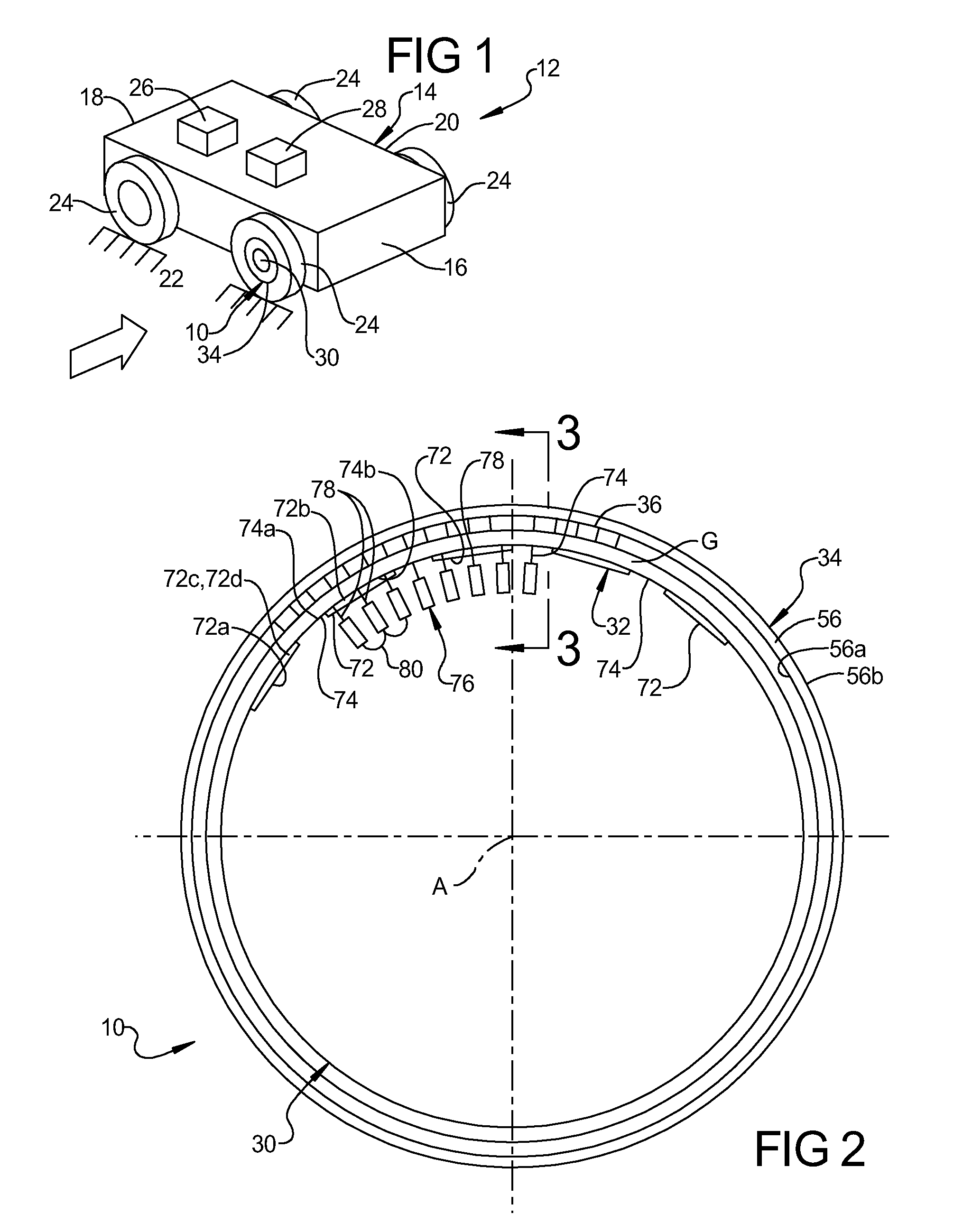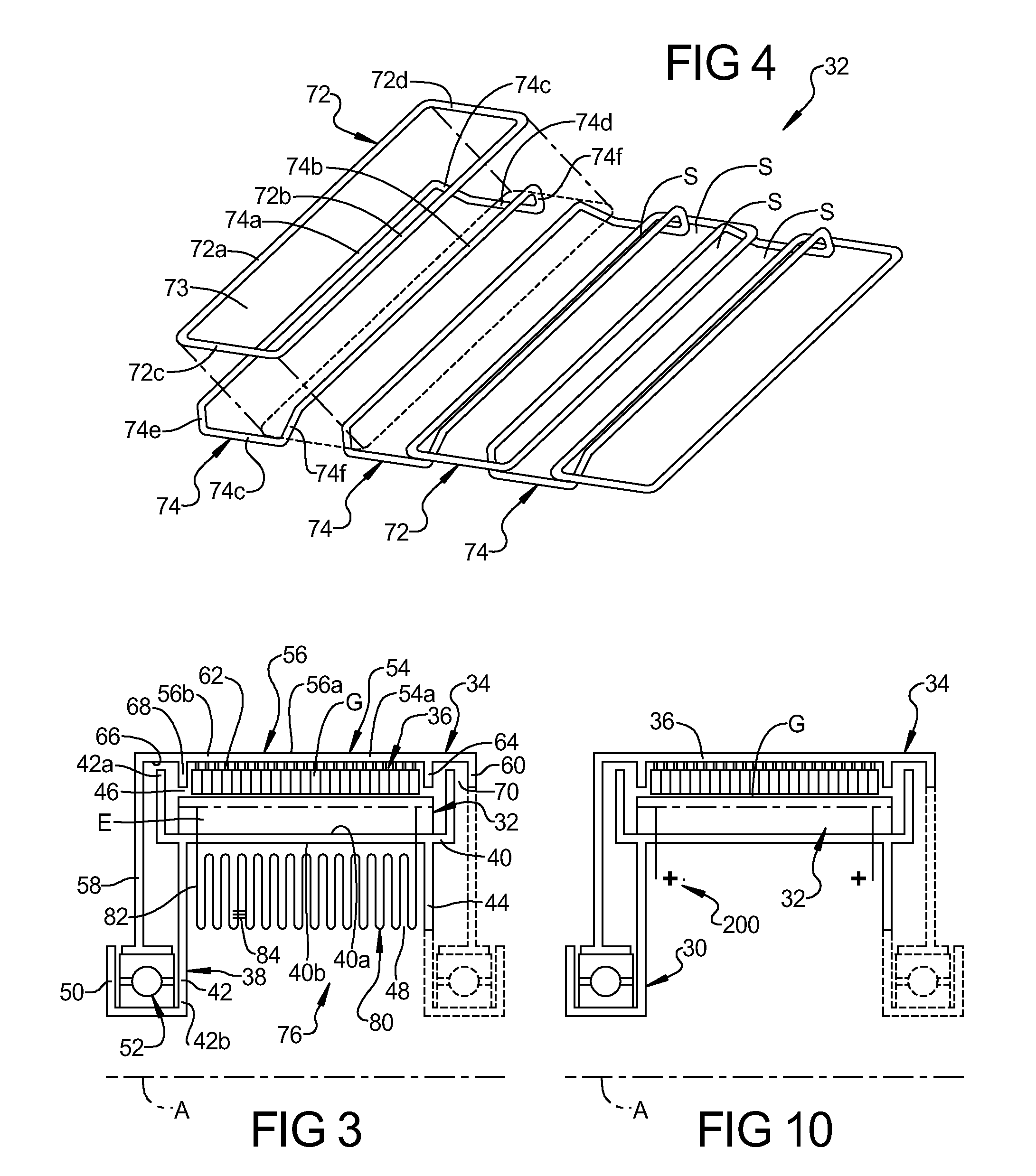Motor/generator structure
a brushless motor and generator technology, applied in the direction of dynamo-electric machines, electrical devices, windings, etc., can solve the problems of reducing the magnetic flux density, damaging the coils, affecting the strength of the magnets, etc., and achieves the effect of improving power conversion and increasing interaction
- Summary
- Abstract
- Description
- Claims
- Application Information
AI Technical Summary
Benefits of technology
Problems solved by technology
Method used
Image
Examples
Embodiment Construction
[0073]Referring now to the drawings, FIGS. 1-9 and FIG. 10, respectively, illustrate preferred embodiments of a brushless, ironless, synchronous, DC, single radial gap, electric motor or generator, according to this invention. As used herein, the apparatus of each embodiment is referred to as an electric motor, which produces mechanical power output in the form of rotational torque.
[0074]The electric motor of each embodiment includes a stator or stationary structure, a rotor mounted for rotation relative to the stator in a manner that a surface of the rotor is separated from a corresponding surface of the stator by a radial gap to form a cylindrical annular gap therebetween, a succession of permanent magnets, or annular magnet structure, is mounted to a surface of the rotor for rotation therewith and in juxtaposed relation with an electromagnetic induction structure mounted to a surface of the stator.
[0075]In the embodiments described herein, the rotor and magnet structure rotate ab...
PUM
 Login to View More
Login to View More Abstract
Description
Claims
Application Information
 Login to View More
Login to View More - R&D
- Intellectual Property
- Life Sciences
- Materials
- Tech Scout
- Unparalleled Data Quality
- Higher Quality Content
- 60% Fewer Hallucinations
Browse by: Latest US Patents, China's latest patents, Technical Efficacy Thesaurus, Application Domain, Technology Topic, Popular Technical Reports.
© 2025 PatSnap. All rights reserved.Legal|Privacy policy|Modern Slavery Act Transparency Statement|Sitemap|About US| Contact US: help@patsnap.com



